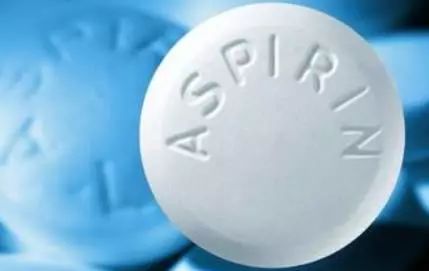"Healthy" aspirin is a 40 -year error?This is the answer that 200 million people want to know!
Author:People's Daily Time:2022.09.27
Recently, a article may also start to start a big jump:
"Shocking the world! Aspirin who goes down the altar: a 40 -year error! "
""
"The two major international authoritative magazines are published, aspirin has no benefit!" The article exclaimed that taking aspirin to prevent cardiovascular and cerebrovascular diseases is a "40 -year error" because it cannot provide safe and effective protection, but it may also lead to the intestines and the intestines and the intestines and Intracranial hemorrhage, ulcer, renal failure, blindness, etc.
is that true? Can Aspirin continue to eat?
The 2014 China Cardiovascular Report shows that there are about 290 million cardiovascular patients in my country. It is conceivable how many people are worried because of this article. Then, let's talk about the doubts about Aspirin today!
1. Can Aspirin be eaten?
can! The cornerstone status of aspirin in the "secondary prevention" of cardiovascular disease cannot be shaken.
The existing evidence clearly shows that the benefits of aspirin have greater than the risk of bleeding for patients who have done heart stent or bridge, suffering from myocardial infarction and ischemic stroke.
For patients with cardiovascular and cerebrovascular patients who need to take medicine for a long time, aspirin is a better choice for anticarrine with less, good effect, and small side effects.
Professor Lu Shuzheng, director of the Department of Cardiology of Beijing Anzhen Hospital, said, "For patients who have already occurred in cardiovascular disease, long -term use of small -dose aspirin prevention can significantly reduce the occurrence of myocardial infarction, stroke, and heart death."
Hu Dayi, a famous cardiovascular expert, also explained in an interview with a reporter from the Southern Weekend that aspirin is a drug preventing thrombosis and preventing vascular incidents. As long as there is a risk of spa rupture and thrombosis, aspirin should be taken orally. If the study is interpreted as "aspirin has no benefit to patients", "this misunderstanding is likely to be fatal."
In layman's terms, "first -level prevention" refers to measures when cerebral infarction and myocardial infarction have not yet occurred to control and reduce risk factors, and prevent diseases;
The "secondary prevention" means that cardiovascular and cerebrovascular diseases have occurred, and the disease is prevented from re -occurring through effective intervention methods.
2. Aspirin, it is not a magical medicine that everyone can eat!
If you do not have cardiovascular disease or the risk of illness is not high, you want to achieve the role of health care and prevention through aspirin, then you have made a mistake from the beginning.
Aspirin is not a health product, but for treatment.
There are also some people who see that some research shows that aspirin has some effects on reducing the incidence of certain cancers, so she regards aspirin as a magic medicine, and wants to take the effect of preventing cancer. Play the wrong abacus.
"If the risk of acute thrombosis embolism is not high, it is meaningless to use aspirin." Guo Yifang, member of the Standing Committee of the Cardiovascular Medicine Branch of the Chinese Medical Association and deputy dean of Hebei Provincial People's Hospital, said in an interview with the reporter of the Southern Weekend.
Over the years, the cornerstone status of aspirin in the "secondary prevention" of cardiovascular disease cannot be shaken, but whether it should be used for "first -level prevention" is always controversial.
FDA issued a statement on the official website saying, "The conclusion that we have come to a person who does not experience heart disease, stroke or cardiovascular disease does not support Aspirin as preventing drugs."

3. What are the risks of serving aspirin?
1 It is easy to damage the digestive tract
It has certain stimulation of gastrointestinal tract, which can lead to serious side effects such as bleeding. The gastrointestinal mucosa erosion, ulcer, and life -threatening digestive tract bleeding and perforation are aspirin's most common adverse reactions. Especially for patients with gastrointestinal ulcers and bleeding gastric diseases, they must not be taken blindly.
2 It may hinder ulcer healing
The risk of bleeding and perforation of ulcers increases by 4 to 6 times. Patients who are hospitalized for long -term oral aspirin in the Department of Gastroenterology. Patients who have black or vomiting brown liquids during oral administration of aspirin are specially vigilant.
4. Who should eat and who should not eat?
Chang Bingxi, associate professor of Cardiology, Beijing Union Hospital, introduced that the following groups are suitable for aspirin:
1. Patients with coronary heart disease, patients with strokes, and patients with peripheral vascular disease, take aspirin for a long time.
2. Patients who are put into the heart bracket also need to take aspirin for a long time to prevent thrombosis.
3. Some other risk factors,
Such as: family history of coronary heart disease, hypertension, hyperlipidemia, hyperglycemia, obesity, smoking, atrial fibrillation, lack of exercise and age.
If a man is accompanied by two risk factors over 45 years old,
Women over 55 years old are accompanied by two risk factors.
Therefore, not all people over the age of 40 need to take aspirin, and need strict medical indicators. You can go to the hospital for the hospital for a health assessment. Based on risks and benefits, you can finally determine whether to take aspirin.
Remember: Aspirin is superb price, a century -old medicine, is absolutely reliable. But it is not a health product and cannot be popular for all. Please take it under the guidance of a doctor.
Source: Health Times (ID: JKSB2013)
Editor in this issue: Shi Lei, Yang Qiaochu
- END -
Can patients with thyroid nodules eat melon?"2 fruit", please stay as far as possible

In recent years, with the popularity of health knowledge, more and more people hav...
Baoding 6.20 ~ 6 · 26 All nucleic acid screening test: All negative
News: From June 20th to June 26th, with the participation of the general public, the city carried out a full -scale nucleic acid screening.As of 18 pm on June 26, all nucleic acid sampling was complet